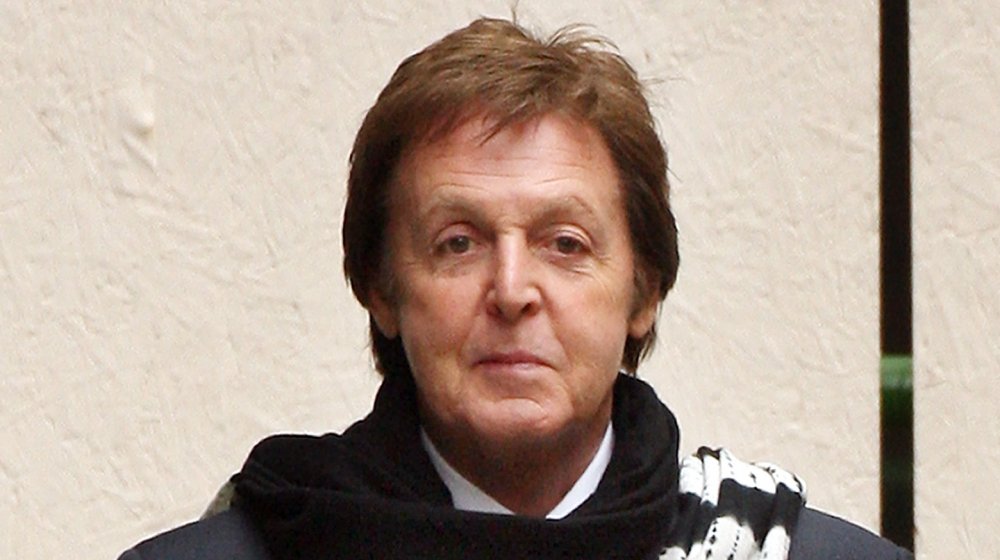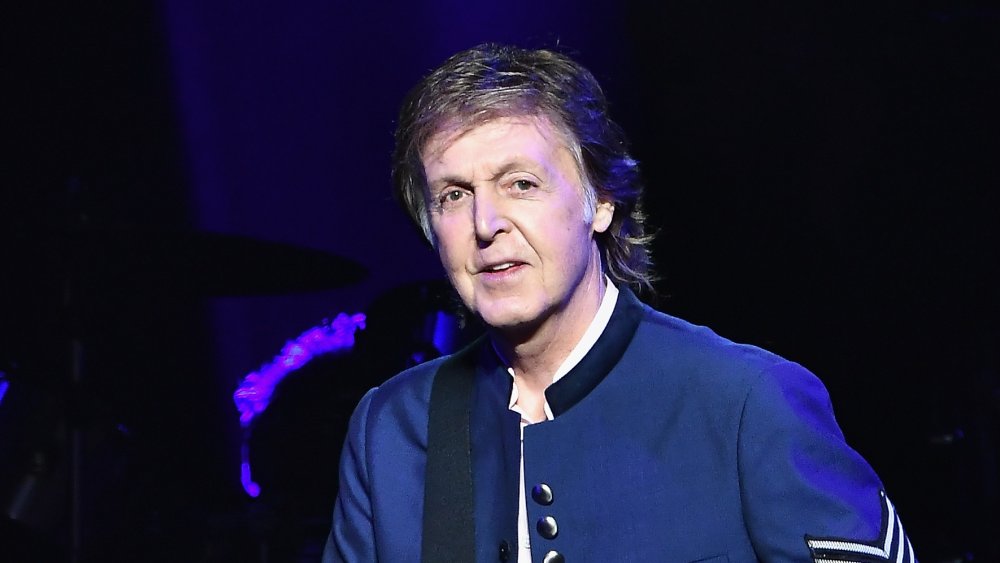Paul McCartney Has An Urgent Plea For The Chinese Government
Beatles legend Paul McCartney appeared on SiriusXM's The Howard Stern Show on April 14, 2020, to share theories about the coronavirus and how he's handling the pandemic. He told Stern that he's currently separated from his wife, Nancy Shevell, who was in New York when the stay-at-home order was put into place. Despite this unfortunate circumstance, McCartney has managed to find a silver lining in the situation, noting how many people are "pulling together" during these tough times (via The Hollywood Reporter).
McCartney also shared his opinion on what he thinks could prevent future pandemics, and urged the Chinese government to take a stand against wet markets, arguing that reopening them is like "letting off atomic bombs."
Wet markets, for those who don't know, are "typically large collections of open-air stalls selling fresh seafood, meat, fruits, and vegetables," per National Geographic. Wet markets sometimes sell and "slaughter live animals on site, including chickens, fish, and shellfish," and get the name "wet" because the "floors are often hosed down after vendors wash vegetables or clean fish," per CNN. COVID-19 is believed to have originated in a wet market in the city of Wuhan, China, although this theory hasn't been confirmed.
In response to McCartney's take, Stern said "it's mind-boggling" that the Chinese government won't shut down these wet markets and claimed its what "got us into this trouble in the first place" (via Variety). However, not all experts agree with McCartney and the radio host.
Paul McCartney thinks wet markets are "medieval"
Paul McCartney, a vegetarian, was firm in his stance that wet markets should be banned. He told Stern (via Variety), " ... It is a very good idea. They don't need all the people dying. And what's it for? All these medieval practices." He added, "They might as well be letting off atomic bombs because it's affecting the whole world ... Hopefully, people will call on the Chinese to sort something out."
For context, "buying, selling, and slaughtering wild animals for food is one way an animal-borne disease may infect people," as senior National Geographic Society wildlife trade investigative reporter, Dina Fine Maron, explained in a National Geographic article. Maron noted how "viruses can spread more easily if animals in markets are sick or kept in dirty, cramped conditions, such as in stacked cages," adding that "when animals are under duress, viral pathogens can intermingle, swap bits of their genetic code, and perhaps mutate in ways that make them more transmissible between species." Viruses like COVID-19 "can jump to food handlers or customers through exposure to an animal's bodily fluids," the reporter explained.
However, the theory that the coronavirus spread in a Wuhan wet market hasn't been confirmed. What researchers seem to agree on, as Professor Stephen Turner, head of the department of microbiology at Melbourne's Monash University, noted to The Guardian, is that it's "likely the virus originated in bats."
Either way, it sounds like McCartney won't abandon his opinion anytime soon.


